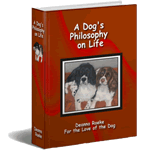When Terry and Dawn Hall put cocoa bean mulch in their
Minneapolis flower gardens, they thought it would make their back yard look beautiful, and prolong the lives of
their plants. Instead, the mulch took the life of their 3-year-old Chocolate Labrador, Moose.
"We never really thought of him as a dog, he was a member
of our family," said Terry Hall.
Moose was with Terry and his wife along the St. Croix River
last week, when he suddenly collapsed. Terry Hall performed C.P.R. for 45 minutes, without success. I had to do
the unfortunate thing of walking to the rear of the boat and telling Dawn that he didn't make it," he
said.
Because the Halls had no idea what caused their dog's
death, that same day they took him to the University of Minnesota, where a veterinarian performed a
necropsy.
The vet found cocoa shells in Moose's stomach and evidence
of a chemical in the shells called theobromine.
According to the American Society for the Prevention of
Cruelty to Animals, theobromine can cause dogs to vomit, seize, and even die.
According to the Halls, they were told the theobromine
caused Moose's heart to beat rapidly and ultimately stop.
"We were really shocked. Floored," said Terry Hall. They
checked their cocoa mulch bag, and noticed only a small warning: "Not meant for human or animal
consumption."
The Halls said that doesn't come close to conveying how
dangerous this stuff is. "We just want to let consumers know that this is a product that essentially could kill
your dog," according to Dawn Hall.
A young couple that planned on starting their family with a
dog is left with a void they don't know how to fill. The Halls said they're trying to turn their grief into
something positive.
"I wouldn't want anyone in our area here, in Minneapolis or
Minnesota, or in the country to go through this. It's gut wrenching, absolutely gut wrenching," said Terry
Hall.
There are brands of cocoa mulch that remove the chemical,
like "Cocoa Mulch" brand. However, the ASPCA recommends "avoiding use of cocoa bean shell mulch in landscaping
around unsupervised dogs."(WCCO)







